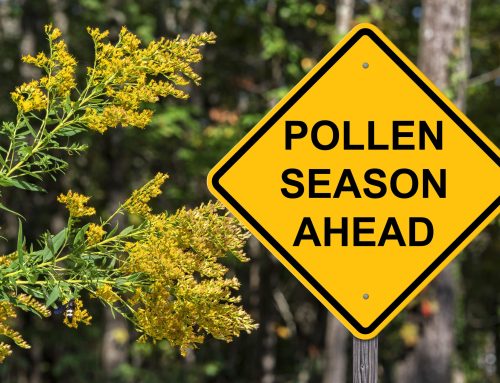|
|
|
As the colder months approach, we all know what’s coming—sniffles, coughs, and the all-too-familiar congestion that can knock us off our feet. While you can’t completely avoid cold and flu season, you can definitely take steps to reduce your chances of catching something. The best part? Many of these tips are easy to incorporate into your daily routine, helping you stay healthier all season long. Keep Your Hands CleanOne of the simplest ways to guard yourself against cold and flu viruses is through regular handwashing. It’s amazing how much of a difference it can make. Warm water, a little soap, and a good scrub for at least 20 seconds will help wash away any germs you may have picked up during the day. If you’re out and about, keep some hand sanitizer on hand—it’s a quick fix when you don’t have access to soap and water. Support Your Immune SystemAnother often overlooked trick is to keep your immune system in top shape. It’s not just about avoiding germs; it’s about making sure your body can fight them off. That means getting enough rest, eating a balanced diet, and staying active. A good night’s sleep does wonders for your immune function, and a nutrient-packed meal gives your body the tools it needs to defend itself. While it might feel harder to stay active in the colder months, even a brisk walk can keep your circulation going and your immune system strong. Stay HydratedHydration is key, too. When it’s chilly outside, it’s easy to forget about drinking enough water, but your body needs fluids to keep everything running smoothly. Not only does hydration help flush out toxins, but it also keeps your mucous membranes moist, which makes it harder for viruses to settle in. If plain water isn’t doing it for you, try herbal teas or warm broths—both are soothing and help with hydration. Improve Your Air QualityBe mindful of the air quality in your home. Dry, heated air can irritate your respiratory system, making you more vulnerable to colds. Adding a humidifier to your living space can help maintain moisture in the air, keeping your nasal passages comfortable and reducing your risk of getting sick. It’s a small investment with big returns. Limit Exposure to Sick IndividualsLet’s not forget about minimizing exposure when you know someone around you is feeling under the weather. If you notice someone sniffling or coughing, give them a bit of space, and encourage them to rest up. You can also boost your defenses by regularly disinfecting high-touch areas around your home—think doorknobs, light switches, and your phone. Boost Your Vitamin IntakeIn addition to these practical steps, boosting your intake of immune-supporting vitamins is a great idea. Vitamin C and D are your go-to allies here. You can increase these through food—think citrus fruits, leafy greens, and fatty fish—or consider a supplement if you’re not getting enough. A well-timed dose of these vitamins can give your immune system that extra push when it needs it most. Manage Your StressAs we’re all dealing with busy lives and, sometimes, unavoidable stress, taking a moment to relax is critical, too. Stress is often an invisible drain on your immune system. Finding ways to unwind—whether through meditation, deep breathing exercises, or even just a quiet cup of tea—can do wonders for your overall health. Rest If You’re SickIf you do find yourself feeling under the weather, don’t push it. One of the best things you can do is listen to your body. Taking a day off to rest can help you recover faster and prevent spreading illness to those around you. By incorporating these habits into your routine, you’ll be giving your immune system the support it needs to keep you feeling good throughout the cold and flu season. Prevention is always the best medicine, and a few mindful adjustments to your day can make a world of difference. About Mail Order Meds:Since 2018, MailOrderMeds has been here to provide Americans with a safe and affordable alternative to high-priced medications. We use our 20 years of expertise to ensure you are receiving the service you deserve. Your health and wellbeing will always be our top priority. |






Leave A Comment